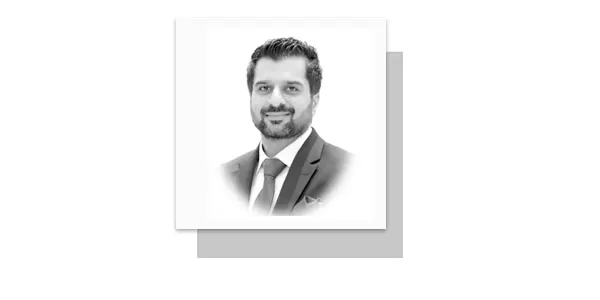SUPPOSE this world is underdeveloped, humans live in caves and their prosperity is dependent on exceptional minds. Who would be your best choice as a leader? Should we choose a selfish man or a man who cares about his community? If you could choose anyone, who would be your perfect leader? Do you prefer a man with integrity or a man with questionable morals? A rational person would find the decision clear and easy. Modern nations enjoy unparalleled access to the secrets of progress. History’s pages contain the secrets behind nations’ rise and fall. Our nation’s economic, technological and social shortcomings stem from prioritizing quantity over quality. We fail to recognize that national growth hinges on strong values and a connection to its history.
Leaders today now consult with top experts to address their nations’ long-standing challenges. If governments aim to hire the most qualified individuals for progress, who would turn down the opportunity to contribute their services in technology, IT, education and societal development? History shows nations achieving incredible growth in remarkably short times. Developed countries understand that intellect surpasses physical strength and principles produce superior outcomes compared to actions alone. A brilliant mind discovers its life’s work and countries thrive when their citizens have clear goals that benefit both themselves and their nation. National leaders are obligated to provide their people with a sense of purpose. The Greeks instilled this in their people; their strong value system enabled them to realize their dreams.
The transformation of their pupils’ mindsets, however, stemmed from the Greeks’ leadership. Greek leaders’ adherence to a strong value system was key to their prosperity. The logic extends beyond this point. The ingenuity of brilliant minds fuels the innovative ideas that propel nations forward in today’s global competition. Yet, the state must protect and cultivate these intellects as they serve the best interests of the state and its citizens. If Thomas Edison, Albert Einstein and Isaac Newton had not been protected and had not made their contributions, today’s world would be drastically different. In modern societies, the pursuit of excellence and glory is led by brilliant minds. Developing countries experience the opposite effect. Highly intelligent individuals often encounter significant opposition and are frequently excluded from national leadership roles across various sectors.
Talented individuals are prevented from contributing to the national cause when colonial mindsets limit their advancement. The outcome is a loss of talent for developing nations and a gain for developed nations using this talent for their national growth. Great minds gravitate toward innovative concepts. They opt to remain with those prioritizing growth rather than conflict. The result is these societies’ unimaginable expansion. Developing countries often see conflicting ideologies triumph over unifying approaches, leading to negative consequences such as political instability and inter-group violence. It is up to leaders to cultivate a new mindset among individuals. An unproductive mind will often resort to harmful tactics for survival. Conversely, maintaining morality is also crucial. Good morals are society’s shield against evil. Compromised morality fuels societal corruption and corrupt individuals are a result of that society.
Although a society can’t be entirely free of social ills, promoting morality helps uphold values and counter negative trends. No society prioritizing morality has ever been subjugated. Values also mean being steadfast in commitments and upholding integrity during hardship. All of this hinges on the role of leaders. Leading the way, they also serve as role models for the youth to emulate and embrace these values. While rare, leaders possessing both intellect and strong values bestow unparalleled glory upon their nations. Pakistan’s situation tragically shows a decline in all aspects of national life. The youth’s education doesn’t meet international standards. While the talent is present, the necessary support systems for its development are absent.
Society is creating people with inflated egos and crippling self-doubt. Idle pursuits are distracting young people and causing them to waste valuable time. The popularity of worthless content on social media platforms like TikTok has influenced many young people. Materialism has triumphed over collectivism, causing societal values to plummet and sparking conflicts based on political and religious differences. Our recent history lacks great innovators, a problem stemming from our disinterest in fostering them. Our society is controlled by those with limited ability to change the nation’s destiny. With a young population, Pakistan can achieve its forefathers’ dream by focusing on youth values and mindset development. The gravest danger is our nation’s potential enslavement by developed countries if we fail.
We’re presently reliant on the West for technological and economic growth. To take control of our destiny, we must strengthen our values system and prioritize our integrity. The nation’s elite know this, but they want to keep it from the general public. This explains why we’ve failed to uphold our values and foster exceptional mindsets; it threatens the elite’s power structure. Pakistan’s elite must now take the lead in developing the minds that will make it a great country. This has been done by Singapore’s elite. Their policy is actually called “Managed by elites”. Instead, it has propelled the nation forward politically, economically and technologically, without causing any harm. Alternatively, neglecting this will exacerbate societal divisions, hindering Pakistan’s global potential. Was this the reason we achieved freedom? Did we sacrifice precious lives to create a separate homeland for this purpose? Everyone knows the answer. This country’s population warrants a better standard of living.
—The writer is an educationist and a Commoner from 44th Common, based in Sargodha.
(waqarhassancsp@gmail.com)










